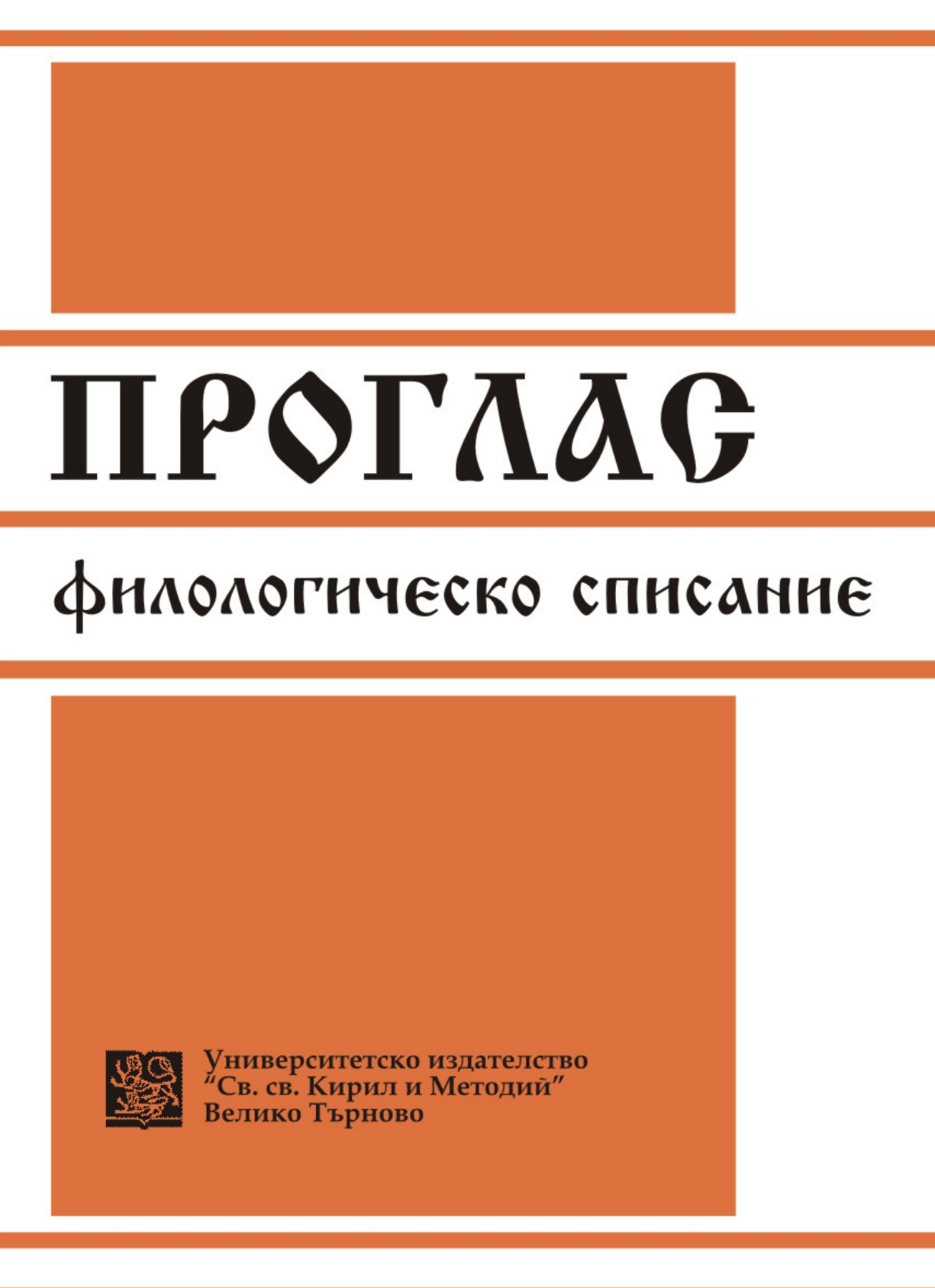
We kindly inform you that, as long as the subject affiliation of our 300.000+ articles is in progress, you might get unsufficient or no results on your third level or second level search. In this case, please broaden your search criteria.

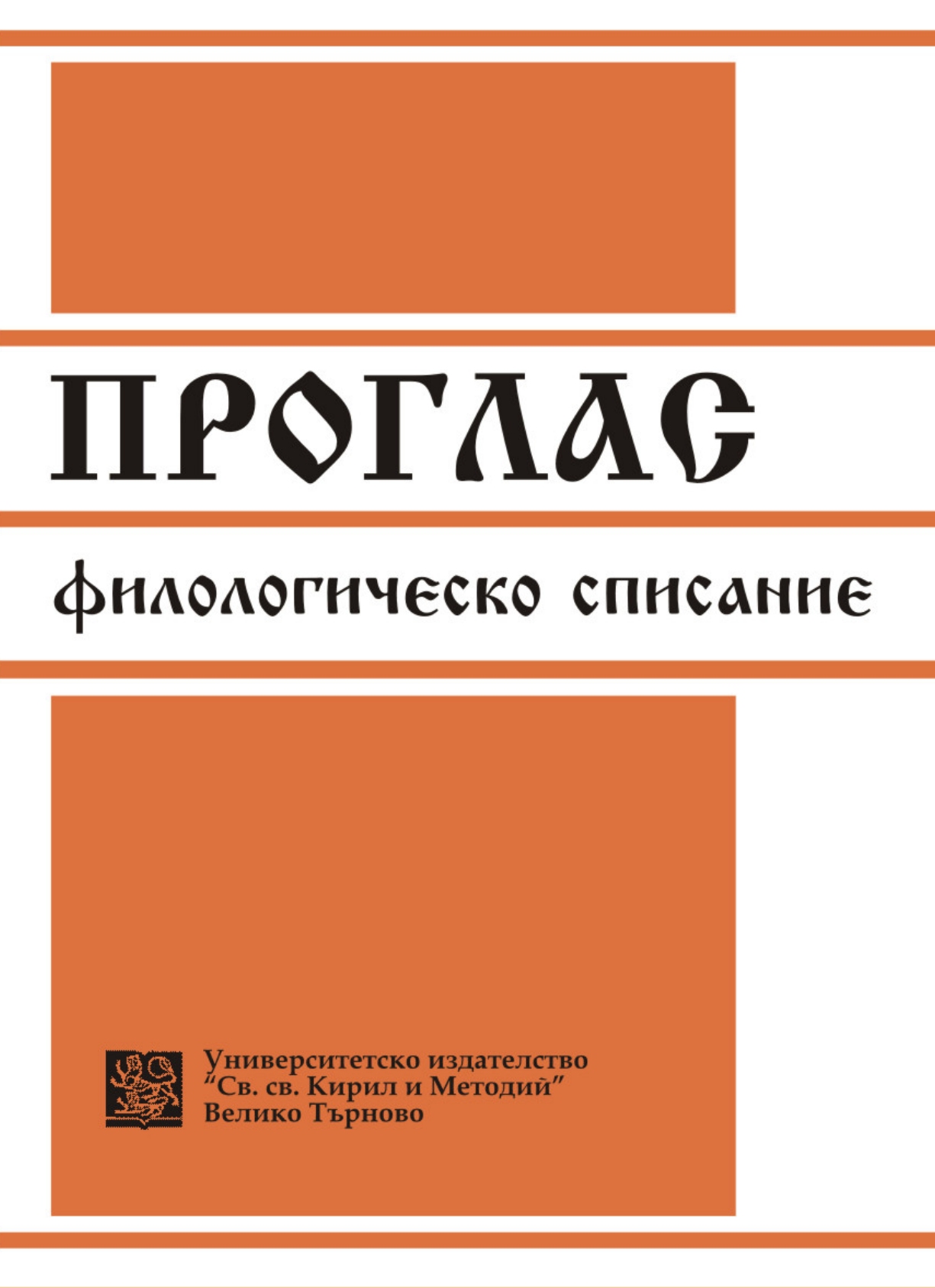
The turbulent – in a historical sense – era of ІV–V cc. was at the same time the Golden Age of Christian literature. The issue of the Roman Empire, which was the homeland of most of the Church authors at that time, is discussed in the Latin Christian literary works of this period. What was the attitude of the Christian writers towards the political entities, which called themselves „homelands“? What kind of travels did the Christians during ІV–V cc. undertake, what were the reasons for them and what was their purpose? And finally, what did the Christians actually strive for in their journeys and in their lifetime as a whole? The following paper aims to answer these questions.
More...
The paper discusses the images of China from their earliest appearance in European sources of information about the empire (known as Cathay and also as the land of the Seres) up to the end of the nineteenth century. It traces the development of these images through the centuries and examines how they have changed in accordance with the varying ways in which the representatives of the West have looked upon the world. Special attention has been given to the cyclic nature of image creation. The individual authors have been grouped in several sections discussing the different periods of communication and interaction.
More...
The paper reveals and analyses two illustrations by the Polish painter Henryk Dêbicki (1830–1906) on the Serbo-Bulgarian War, published in the popular Warsaw newspaper Tygodnik Ilustrowany in 1885 and 1886 and unknown to Bulgarian scholars. The illustrations prove that Dêbicki, known for his previous cooperation with Bulgarian revolutionary Hristo Botev, continued to work on Bulgaria-related graphics after the country’s liberation in 1878. The author, however, doubts that the illustrator had experienced the war directly and claims that despite being referred to as the paper’s special correspondent, Dêbicki is unlikely to have visited Bulgarian territories.
More...![„[...] Едно пътуване [...], което не бе завръщане“ За структурата на паметта в „Гласовете от Маракеш“ (1967) на Елиас Канети](/api/image/getissuecoverimage?id=picture_2018_41011.jpg)
Die Stimmen von Marrakesch (1967) is one of the characteristic texts produced by Bulgarian-born Austrian writer and Nobel prize winner Elias Canetti. On the one hand, his Aufzeichnungen nach einer Reise (A Record of a Visit) lays the foundations of the aphoristic style of his multi-volume “records”, and, on the other hand, is imbedded in the European tradition of travel writing as a genre dedicated to memoir culture. The paper traces the rhetoric of memory as a narrative principle, unifying the impressions of the traveller as a by-standing observer of the real journey, his reflections on the stories further developed in his imagination and his rhetorical devices for the articulation of universal human ideas.
More...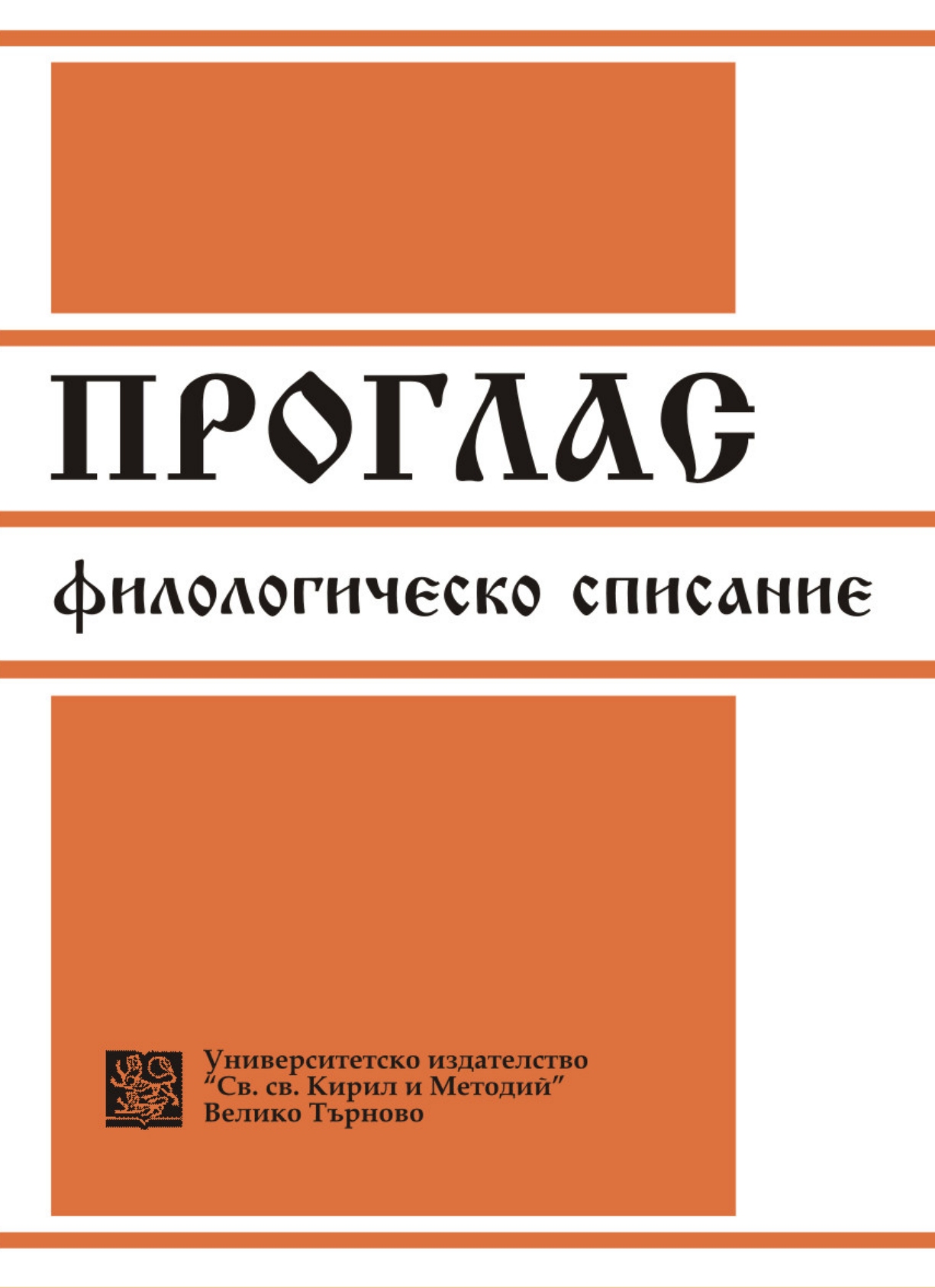
The article deals with the role of the “Turkish yoke” metaphor in historiography, history textbooks, and Bulgarian national culture. The analysis leads to the conclusion that “Turkish yoke” is not the most suitable term for naming the historical period during which Bulgarians had no state of their own for nearly five centuries. Although historically imprecise, the metaphor is defined as an important concept of national culture, representing the mindset of the Bulgarian elite during the High Renaissance period. The understanding of the historical logic behind the term “Turkish yoke” is very important for preserving correct historical memory of the events of the third quarter of the nineteenth century. The text concludes that the “Turkish yoke” metaphor symbolizes the nоn-slave consciousness of those Bulgarians who had accepted the ideas of national revolution.
More...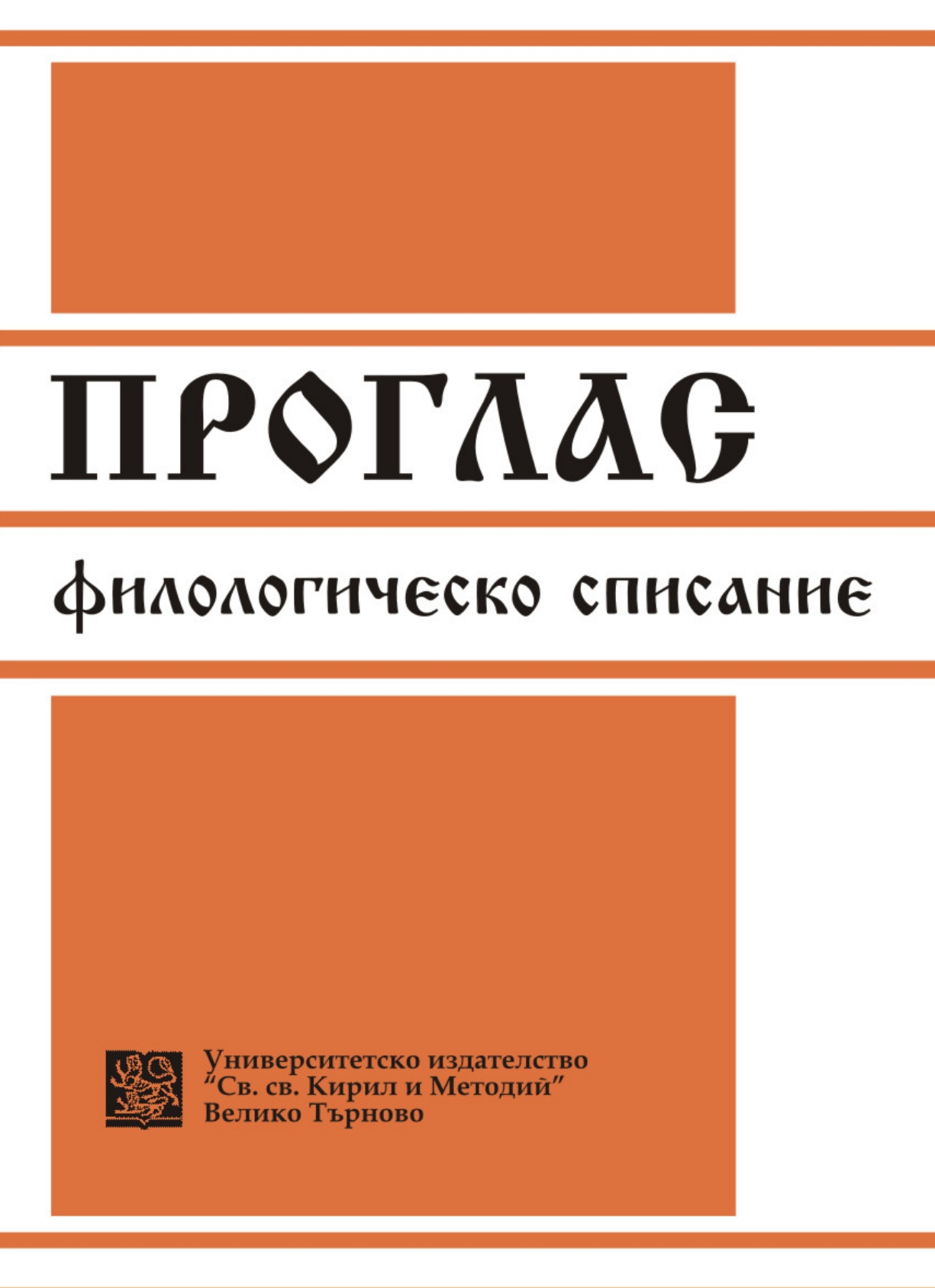
In oration 43, in the anthology “Zlatostruj” is interpreted chapter 13 of the epistle of St. apostle Paul to the people of Rome. In (13:1) obedience to the bearers of power is preached and this behavioral principle is a motto for the author’s text. St. John Chrysostom follows the apostle’s belief that Christ introduces His laws not to destroy the social reciprocity and the civil order, but to strengthen them in order to prevent unnecessary and useless wars. It is normal the power and the society to be in a state of co obedience and consent, in constant obtaining and application of the Christian principles of the attitude between personalities. It is evident that king Simeon the Great shares the idea for an ideal, educated and undivided Christian state under the patronage of God and the power of pious earthly king, God’s servant (Rom.13:4). The consent and co obedience of the nationals is guided by the supreme principle of love – you must love your neighbor as yourself (Matthew 22:37–39).
More...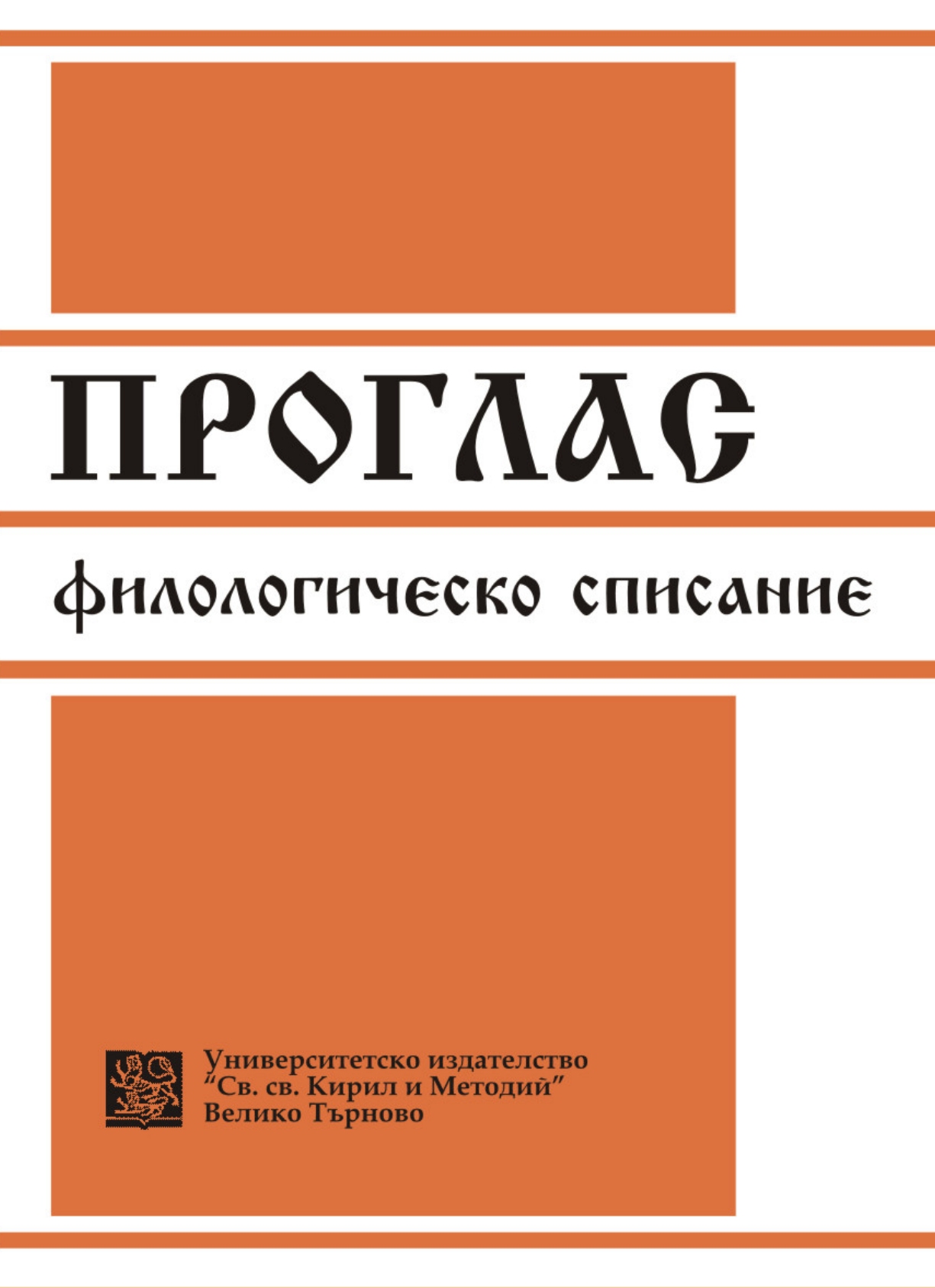
The Chertkov (Moscow) transcript of Paissy Hilendarski’s “A Slavo- Bulgarian History” was discovered in 1960 and it remained for a long time unattributed. Adducing new archive data has made it possible to determine the circumstances and the year when it was made and also to account for the fact of its creation on the basis of the ancient Zheravnenski transcript – the exact whereabouts of the latter still remain unknown, as well as to add new detail to our knowledge about the Russian – Bulgarian cultural ties from the 19th century.
More...
The transcript of “Slavo-Bulgarian History”, done by the Turnovian Kancho Stoyanov in 1844, reflects the late reception of Paisiy’s work. The textological examination and a close study of the language of the manuscript show that it is based on several transcripts, with different genealogy and a different balance between more archaic morphological, syntactic and lexical traits on the one hand, and elements typical of the spoken language during the first half of the XIX century, on the other. In terms of language the transcript is not uniform.
More...
The article is a detailed account of the language used in “Drunk Father, Murderer of His Children”, a novel written by the Bulgarian Revival writer Iliya R. Bluskov and published in 1879–1880. The article tackles major graphic, spelling, phonetic, morphological and syntactic traits of the language in this text. Here one can trace theinfluence of local vernacular and of Bulgarian literary tradition on the author’s language. The analysis shows that Iliya R. Bluskov follows the language-spelling model of the Shumen literary school and that he has contributed to the general acceptance of a number of phonetic and morphological norms which have now been adopted in modern Standard Bulgarian.
More...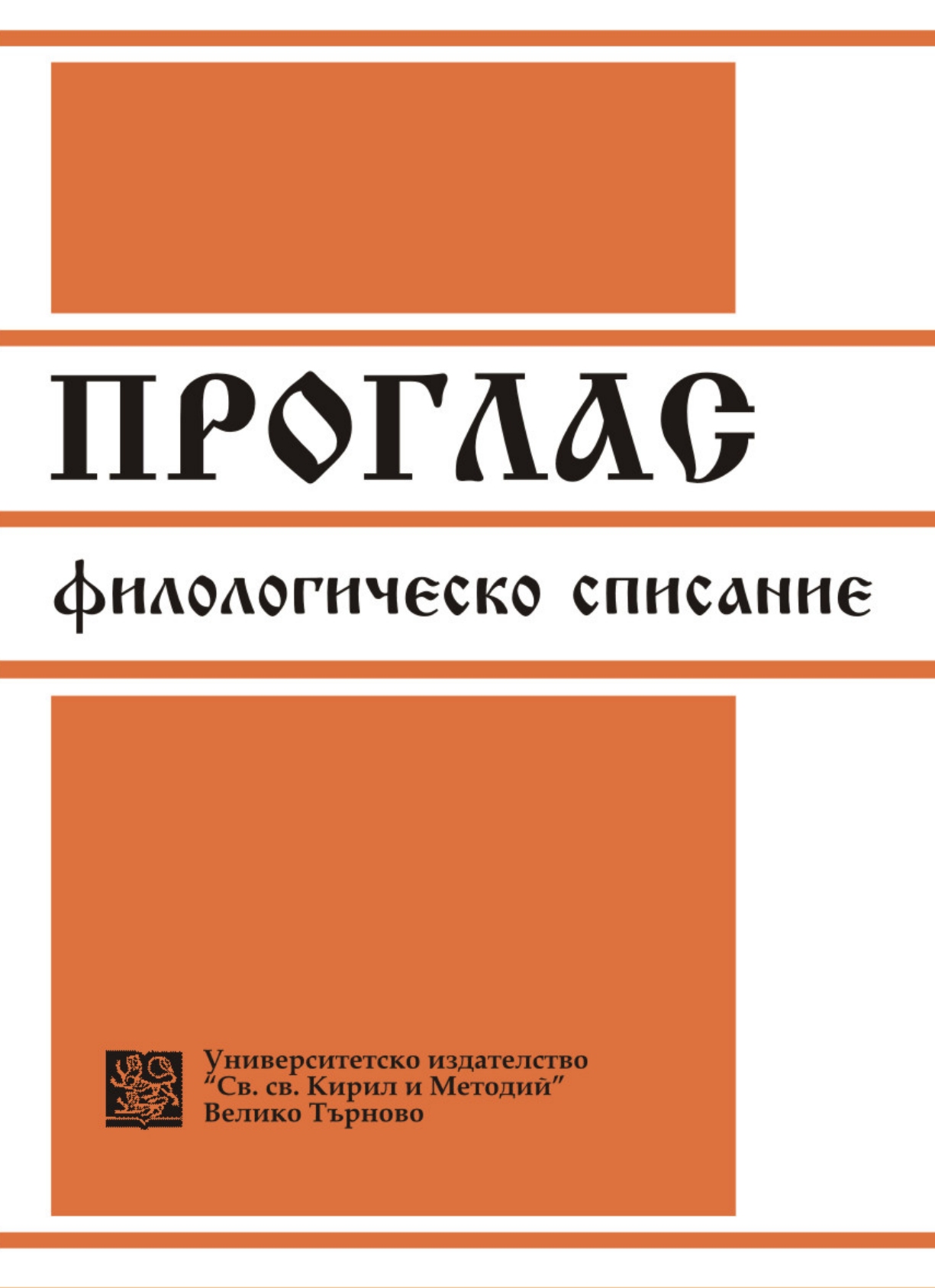
The present paper provides a historical perspective of representations of Bulgarian immigrants in Bessarabia and their descendants on how it is possible to preserve their own ethno-cultural identity in the conditions of a multiethnic environment, how to resist assimilation, and subsequently – what tasks have the community and its leaders assigned to native language education. Several attempts by Bulgarian immigrants to organize native language education are considered; the author analyzes whether – and to what extent – there were special requirements for the content of the training. Summing up the history of the education of the Bessarabian Bulgarians, we can conclude that it is in fact a history of contradictions between the aspirations of Bulgarians to teach their children in their native language and the state policy of Russia, Romania, the USSR and the Republic of Moldova. Based on the documentation and scholarly papers on the issue at hand, the following conclusions have been made: until the 1930s, the very right to learn one’s native language was denied per se, whereas recognizing the ethno-identification content of the native language as well as understanding the need to overcome ethnocentrism in the process of teaching and learning the native language and culture have been characteristics of the late 20th and early 21st centuries
More...
The paper examines Iliya Todorov’s book “On Botev’s verse”. I focus both on the researcher’s conclusions, generalizations and statements, and on the various mechanisms through which he arrives at them. The paper discusses Todorov’s analyses of the existential status of the poems, their variations, the editions in which they were published, the numerous editorial interventions. It raises questions concerning our idea of the poet – how we understand and think about his genius, how we perceive and read his poetic legacy; it also discusses the role of the author with regard to authenticity and tradition.
More...
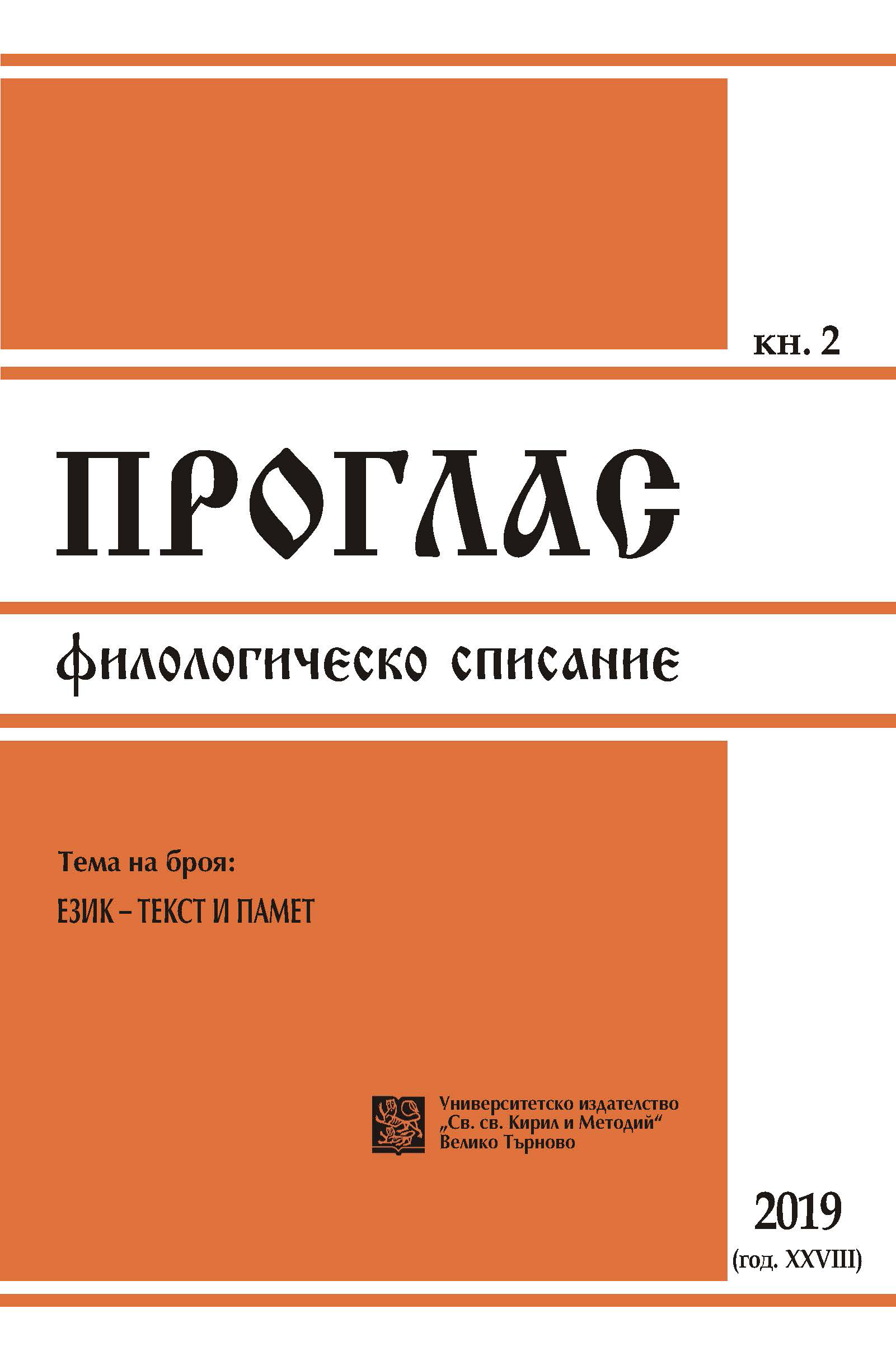
This article discusses fiction novels that have been written in Bulgarian since the 1960s by Bessarabian Bulgarians, focusing on topics related to the life of Bulgarian expats in Bessarabia. The Bulgarian Bessarabian literature from this period is defined as contemporary. This article reconstructs the historical context as interpreted in two different ways: as events that found their way into the narratives, and as circumstances, which enforced both the selection of topics and their interpretation, and at the same time the literary canon that shaped the texts. The article concludes that the depiction of historical events in the novels of P.Trufkin, P. Burlak-Valkanov, Iv. Valkov, Il. Valkov, I. Nenov, A. Maleshkova and N. Kurtev conforms to extraliterary factors: ideology, geopolitical interests of neighboring countries, civilizational pessimism.
More...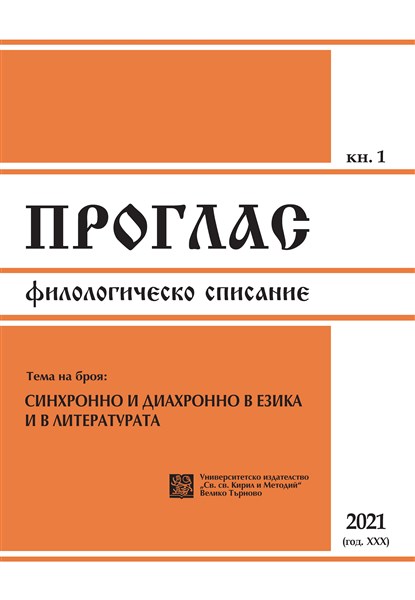
The article focuses on the role and the importance of the Bulgarian language as a foundation of the education process at the Bulgarian St. Cyril and St. Methodius Men’s High School. It discusses the historical factors which had an impact on Bulgarian education in Thessaloniki and studies the establishment and development of the Bulgarian High School in Thessaloniki as well as the role it played in educating teachers for the schools in Macedonia. The analysis focuses on the educational curricula adopted in the mid 1880s and is based on a comparison between the Men’s High School in Thessaloniki – as a representative school beyond the borders of the newly-liberated country – and the high schools in the Principality of Bulgaria. It also outlines the differences in the approaches to determining the number of Bulgarian language classes as well as the specifics of foreign language teaching at the High School in Thessaloniki and those in Bulgaria. Some attention has also been given to the textbooks and handbooks written byteachers from the school.
More...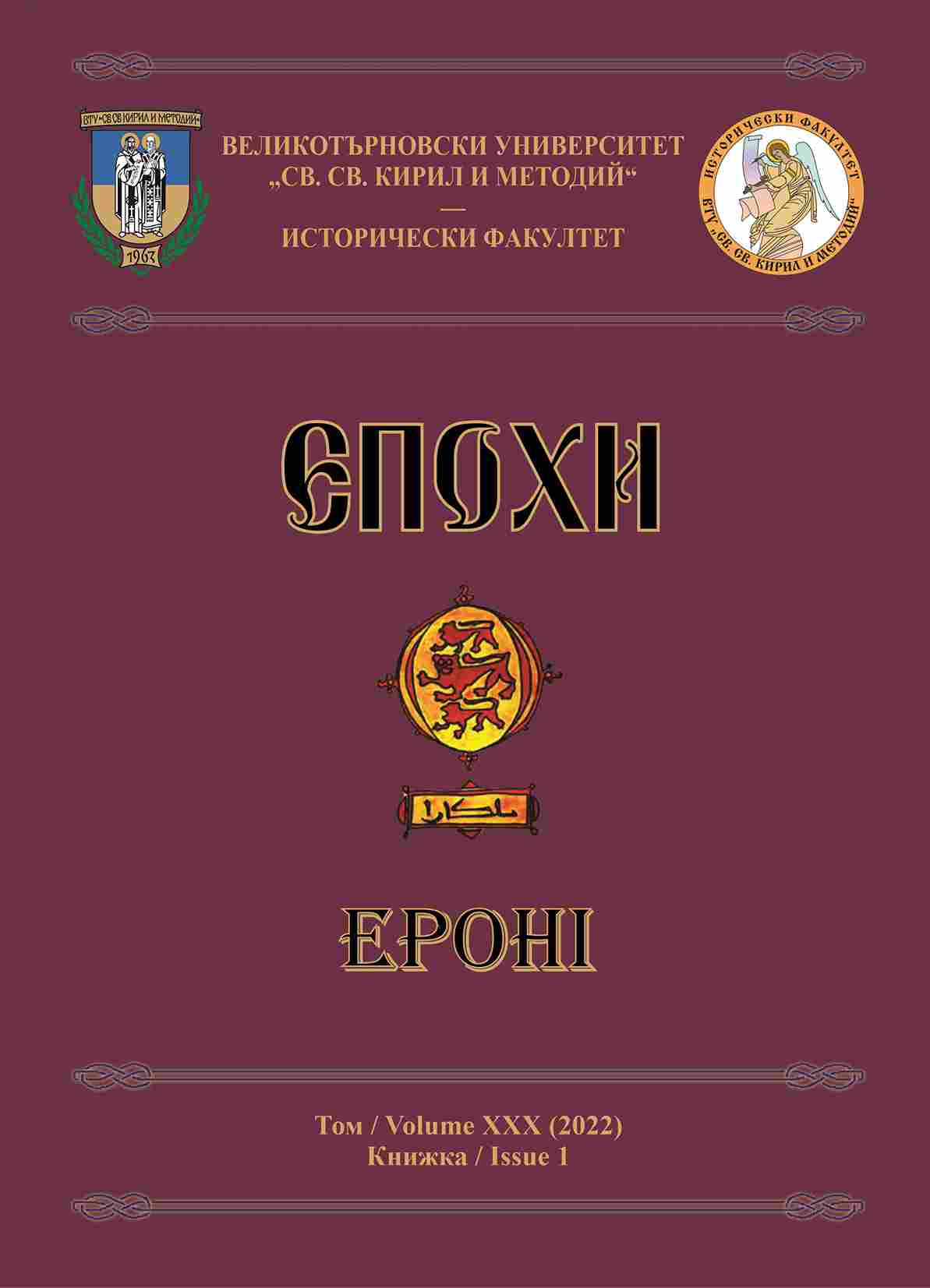
Clarifying the demographic state of humankind during all periods of its historical development is an issue that has long been of interest to the scientific community. This paper traces the specifics and trends in the dynamics of the main demographic processes and structures of the population inhabiting Bulgaria during the Middle Ages. Their analysis allows us to establish that, during the period under review, the Bulgarian state’s characteristic demographic potential was formed with its establishment. The way it was created and the specifics of its subsequent development predetermined its sustainability, and allowed it to preserve its identity despite many negative processes.
More...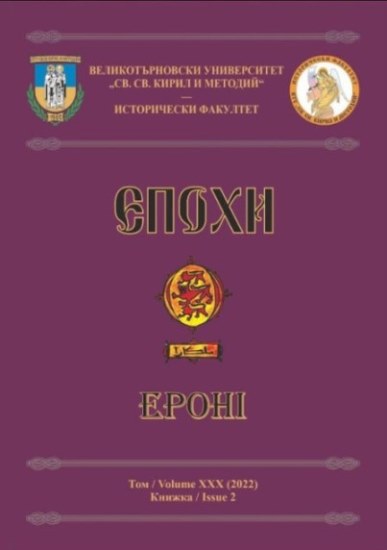
Donations and charity most clearly reveal the sympathy, solidarity, and willingness of the people to support cultural, educational, health, and social initiatives that are useful for the whole society. The history of Veliko Tarnovo in recent times has been marked by numerous acts of charity, which have had a significant contribution to the development of the city, and which are a permanent testimony to the morality and humanity of the Tarnovo citizens. This study is an attempt to systematize the available information about donations in Veliko Tarnovo in order to get a general picture of who is making these donations, to whom, for what, and for what reasons.
More...
Based on the original documentary material collected by the author in the National Archives of the Republic of Moldova, an attempt has been made to investigate some unknown aspects of the struggle of Bessarabian Bulgarians against the tsarist policy of assimilation during the First World War. At the beginning of the 20th century, the Bulgarians ranked fifth in terms of population in Bessarabia – a province annexed to the Russian Empire in 1812. In all these years, they preserved their language, culture, and national traditions, transforming the Alexander III Boys’ Gymnasium in Bolgrad into a true centre of national culture. Many Bessarabian Bulgarians played an important role in the history of Bulgaria, holding positions of responsibility in the Bulgarian state. Some of them were the Prime Minister of Bulgaria Aleksandar Malinov, the Minister of War Danail Nikolaev, the Mayor of Sofia Martin Todorov and his brother General Georgi Todorov, and General Ivan Kolev. Despite this fact, and in contradiction with Russian historical mythology about special relations privileged with Bulgarians, the Russian authorities treated them equally with other national minorities, exposing them to forced assimilation, deportations, expulsions, repressions, and arrests of representatives of the Bulgarian national movement in the Russian Empire.
More...
